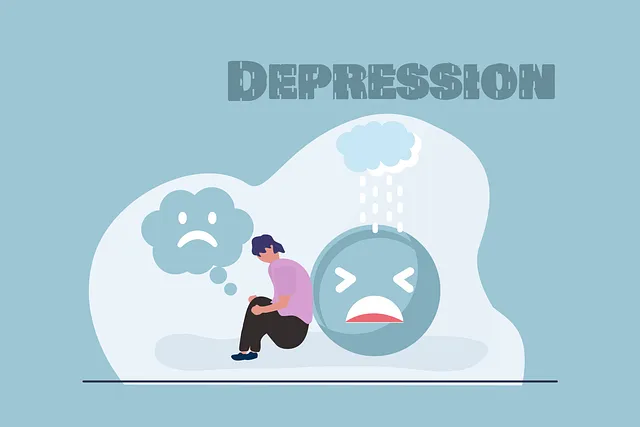Centennial Kaiser Permanente mental health providers prioritize risk assessment and management as a core strategy for effective client care. They utilize tools that identify potential risks, such as confidentiality concerns and emotional strain, to implement mitigation strategies like Mental Wellness Journaling and Self-Esteem Improvement techniques. By integrating these practices into routine care and developing innovative education programs, they foster supportive environments that empower individuals to manage their mental health journeys. This holistic approach, enhanced by trauma support services, leads to improved outcomes for both patients and providers, ensuring the organization's mental health services remain at the forefront of burnout prevention and quality care.
“Effective risk management is paramount for mental health professionals, especially within large healthcare organizations like Centennial Kaiser Permanente. This article guides mental health practitioners through a structured approach to risk assessment and planning. We explore the nuances of understanding risk in mental health practice, highlighting the significance of tailored tools for Centennial Kaiser Permanente providers. Additionally, we provide practical strategies for developing robust risk management plans, ensuring continuous improvement in patient safety.”
- Understanding Risk in Mental Health Practice
- The Role of Risk Assessment Tools for Centennial Kaiser Permanente Providers
- Developing a Comprehensive Risk Management Plan
- Implementation and Continuous Improvement Strategies
Understanding Risk in Mental Health Practice

In the realm of mental health care, understanding risk is paramount for Centennial Kaiser Permanente mental health providers. Risk encompasses various factors that can impact client outcomes, ranging from potential harm to opportunities for growth and resilience. Mental health professionals must recognize and assess risks inherent in their practice settings, such as those related to client confidentiality, ethical dilemmas, and the emotional demands of the work. By proactively identifying these risks, providers can implement effective strategies to mitigate negative impacts while enhancing client safety and well-being.
The comprehensive approach to risk management involves integrating practices like Mental Wellness Journaling Exercise Guidance and Self-Esteem Improvement techniques into routine care. Additionally, designing innovative Mental Health Education Programs ensures that both professionals and clients benefit from enhanced knowledge and skills. This proactive stance not only fosters a supportive environment but also empowers individuals to take charge of their mental health journeys, ultimately contributing to improved outcomes for all involved.
The Role of Risk Assessment Tools for Centennial Kaiser Permanente Providers

For Centennial Kaiser Permanente mental health providers, risk assessment tools play a pivotal role in effective risk management planning. These tools enable professionals to proactively identify potential risks and vulnerabilities among their clientele, allowing for timely interventions that can mitigate adverse outcomes. By integrating emotional intelligence and social skills training into these assessments, practitioners gain valuable insights into patients’ psychological states and interpersonal dynamics. This holistic approach ensures not only the safety of both patient and provider but also facilitates more personalized and effective treatment plans.
Moreover, risk assessment tools should incorporate components related to trauma support services, given that many individuals seeking mental health care have experienced complex traumatic events. Such tools help in uncovering unspoken traumas, enabling providers to offer specialized care tailored to address these unique needs. Through regular utilization of these resources, Centennial Kaiser Permanente’s mental health professionals can enhance their ability to create secure therapeutic environments, foster meaningful connections with clients, and ultimately improve treatment outcomes.
Developing a Comprehensive Risk Management Plan

Mental health professionals at Centennial Kaiser Permanente are tasked with managing complex risks to deliver effective care. Developing a comprehensive risk management plan is essential for ensuring patient safety and the well-being of providers. This involves identifying potential hazards, such as patient self-esteem improvement needs or inner strength development challenges, and implementing proactive strategies to mitigate them.
By integrating trauma support services into their risk management plans, Centennial Kaiser Permanente mental health providers can address underlying issues that may escalate if left unaddressed. This holistic approach not only enhances the quality of care but also fosters a supportive environment where patients feel understood and empowered, ultimately contributing to improved outcomes for both patient and provider alike.
Implementation and Continuous Improvement Strategies

The successful implementation of risk management plans for Centennial Kaiser Permanente mental health providers requires a collaborative approach involving all stakeholders. Regular training sessions and workshops can ensure that every team member understands their role in identifying, assessing, and mitigating risks. Encouraging open communication channels allows professionals to share insights and learn from each other’s experiences, fostering an environment where resilience is built through collective wisdom.
Continuous improvement is integral to this process. Utilizing resources like the Mental Wellness Podcast Series Production can offer fresh perspectives and innovative strategies for risk management. By staying updated with the latest research and trends in burnout prevention, Centennial Kaiser Permanente can enhance its practices, ensuring mental health providers maintain optimal well-being and deliver high-quality care. This ongoing commitment to improvement not only benefits individual practitioners but also positively impacts patient outcomes.
Risk management planning is an indispensable tool for Centennial Kaiser Permanente mental health providers, enabling them to navigate complex patient scenarios with confidence. By understanding risk in practice, utilizing robust assessment tools, and implementing comprehensive strategies, professionals can enhance patient safety while delivering high-quality care. Continuous improvement through regular review and adaptation ensures that the approach remains effective and aligned with best practices, ultimately fostering a resilient and supportive environment for both patients and practitioners.






